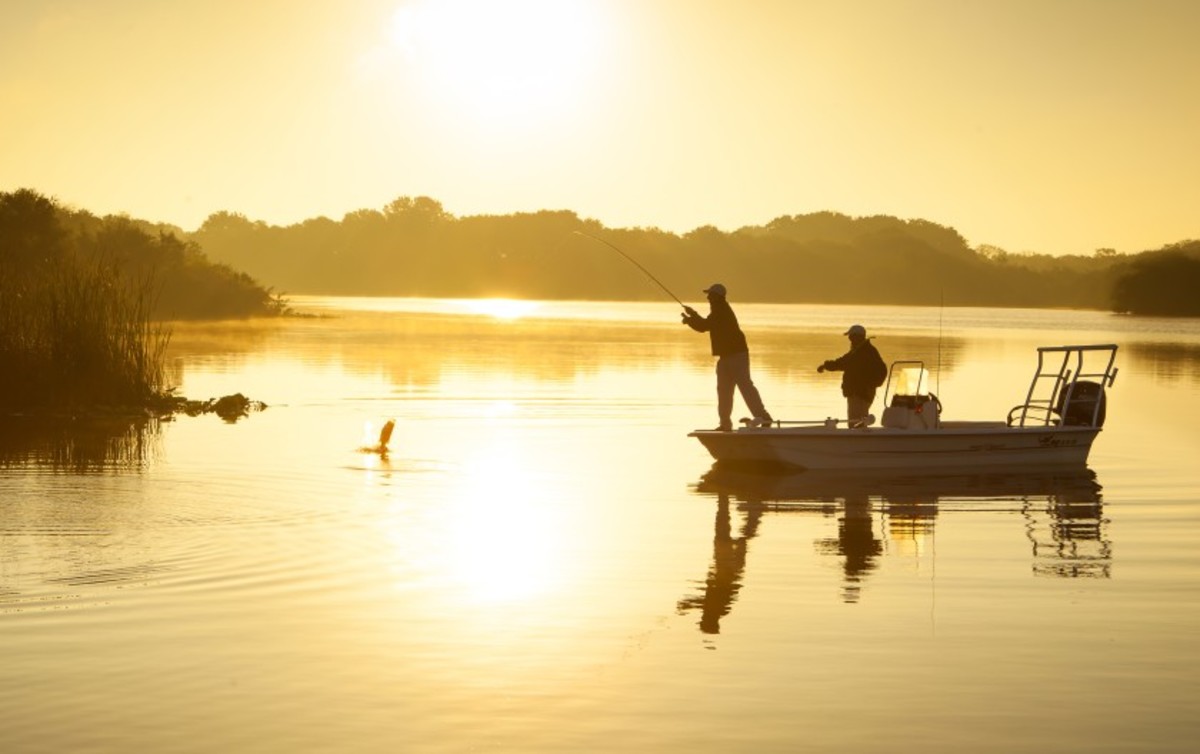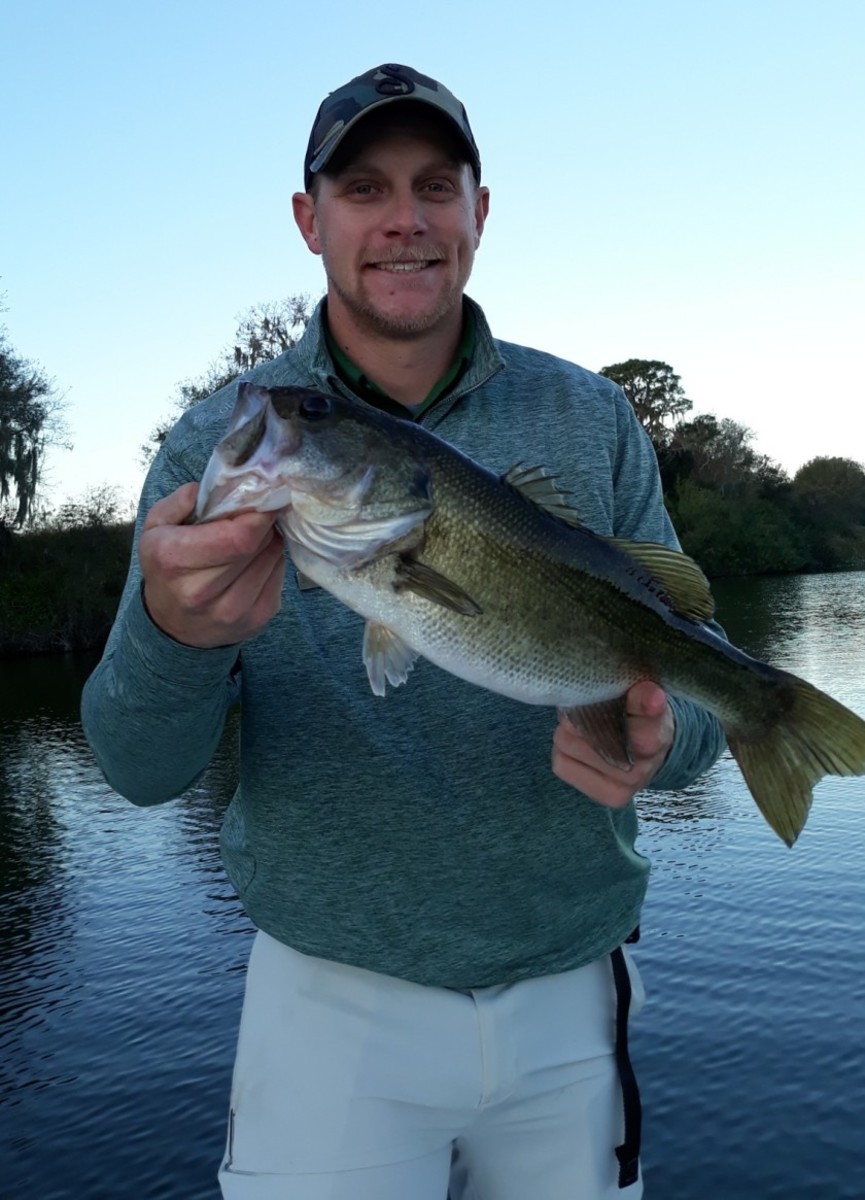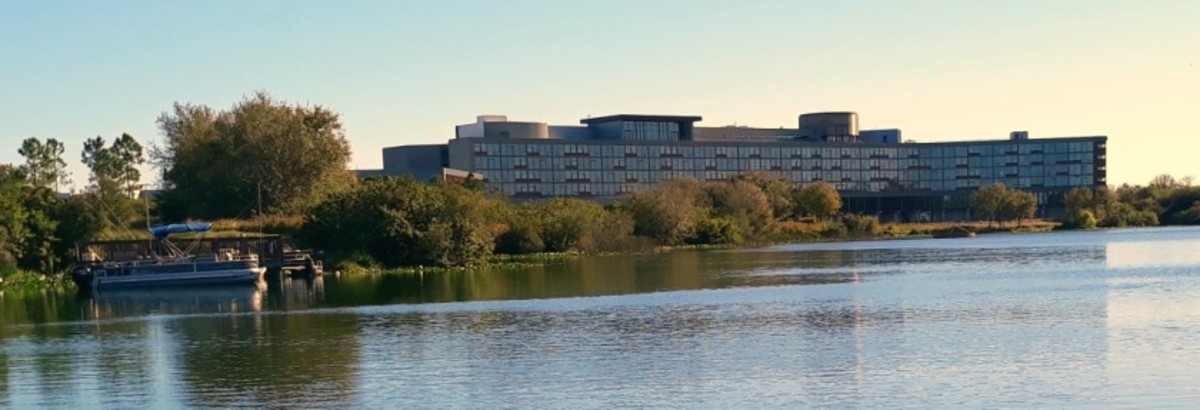Bass fishing flourishes at Streamsong Resort

"Perhaps animals are smarter than men, he thought, taking only what they need to live today leaving something for tomorrow." ― Patrick D. Smith, A Land Remembered
“No, fish are not intelligent,” Trey Talley said. “They’re dumb. But their instincts are good. Like most animals, they rely on their instincts, whereas we want to think everything through. When fish are really biting you’d probably say they’re really dumb because they’ll hit anything you throw at them. On a slow day like today, you might think they’re really smart because they’re not biting anything.
“But it’s just that they’re not hungry, not feeding, so they’re very selective on what they’ll even strike at. You have to dangle it in their face and they’ll strike at it just because they’re not very happy it’s there.”
Like any fisherman, Talley, recreational guide at Streamsong Resort in Bowling Green, Fla., can sit for extended periods in a meditative silence. But ask him a question and be ready to hold tight. While soft-spoken and southern polite — “Yes sir, yes ma’am” — he’s also straightforward, almost agreeably blunt, and not shy of word count. He’s cognizant of his abilities and willing to talk about the nature of fishing, and nature in general, in an impressive torrent of information. But when a fish strikes, he’s all business.

Talley’s business — at least until a furloughed interregnum courtesy of COVID-19 — is more than just a guide. He’s coordinator of non-golf recreational activities for the resort. The resort is open again with some restrictions in place, and golf only on the Black Course. Although that’s not because of the virus; the Red and Blue courses are being re-grassed with a new Ultradwarf Bermuda grass called Mach 1. They’ll reopen in October.
The extracurricular activities that Talley helps oversee — fishing, clay shooting and archery — should begin again in July. They all contribute to a certain sense of wonder that clings to Streamsong at any time, but particularly when one is drifting on the lakes fed by Little Payne Creek in the early morning quiet, mist rising off the water, the stillness broken only by twittering birds in the water oaks and live oaks on shore.
Angle into a canal that bends back toward the main, 216-room lodge and one is struck anew by the bold, futuristic look of Alberto Alfonso's architecture rising brazenly at its site. “I’ve heard it characterized as looking like everything from a spaceship, an ocean liner, or something out of a Bond film,” Talley said.
Back in late January, Talley, 27, characterized himself as a seven-year senior, but he’s since graduated from Polk State College, the first in his family with a college degree. It’s in business, though he said history and biology were among his best subjects. He calls Patrick D. Smith’s A Land Remembered one of his favorite books.
A copy of Smith’s 1984 novel is in every room at Streamsong, a regional classic that relates the early history of central Florida in epic fashion. Streamsong touches on the region’s Bone Valley history — so called from the prehistoric beasts who once roamed the land and whose remains evolved into more than a million acres of phosphate deposits that were strip-mined for more than a century before playing out.
The resort, which still seems to sit in the middle of almost nowhere on 16,000 acres, is clearly one of the most brilliant reclamation projects imaginable, particularly if you like golf and enjoy some of Tom Doak’s, Bill Coore and Ben Crenshaw’s, and Gil Hanse and Jim Wagner’s best work.

The fishing isn’t bad, either, the vast pits of former mining work long
since filled with healthy waterways. Talley has been fishing in such since he was 5.
“My grandfather taught me how to fish,” he said. “That’s where I learned a lot about the outdoors. My dad and I fished some, too, but he was more of a hunter. My grandfather was the bass guy, always had a bass boat. When he was younger he was pretty poor. You can’t really hunt when you’re poor. But you can fish.”
Talley believes Florida is home to the best bass fishing in the U.S. The F1 bass, or large-mouth bass or tiger bass is native to Florida. “It grows faster than other bass, it’s more aggressive. They eat more, they’re growing season is longer,” he said.
The fishing at Streamsong is all catch and release, using soft plastic worms and lizards, structure bugs — crank bait on top water or Texas rigs to go low and slow into the structures bass favor near weed pads.
“Bass are typically ambush predators so they like to be in structures, up against rocks,” he said.
No live bait is the Streamsong policy. Talley said, “Catch a bass this way, and you know you’ve done all the work. Not that you really need live bait with bass. If they’re hungry they’ll eat anything. If they grew to 200 or 300 pounds I’d never swim because they’d eat me.”

They don’t grow that large. The Florida record is 17.27 pounds. Talley’s best is 10 pounds, 3 ounces. The Streamsong guest record is 11.5 pounds, but landing an 8-pounder will put a guest into its Bass Fishing Hall of Fame, a photo on the website with your catch and a free bragger’s rights T-shirt. "People will come out here who have never fished before and catch a nine-pound bass," Talley said. "They don’t really know how rare that is. It’s like a hole in one.”
Like golf, there’s a lot of feel in fishing, particularly in discerning an actual nibble.
“If a bass hits it, you’ll feel a pull, a tug, a bop, a little like Morse code coming through, and then you just want to turn and burn. Set, hold and reel,” Talley said. “The No. 1 thing to do is the hook set, knowing when and how to set the hook properly. So it’s tap, tap, tap on the line and then you have about three seconds: reel in your slack, feel the fish, two Mississippi, and then set that hook, right up to your ear — make it mean. You can’t release pressure on a fish. Set, hold and reel. It’s got to be set and go now.”
If it’s possible to grow golf weary at Streamsong, or even if not, a few hours on the water with Talley or another guide should soon sooth the soul. The two activities aren’t that different after all. They’re out there in the natural world, characterized by as much failure as success, with only the latter lingering in memory. And the fish, like putts, only grow longer in time.
Sign up to receive the Morning Read newsletter, along with Where To Golf Next and The Equipment Insider.
